- Geopolitics
- Environment
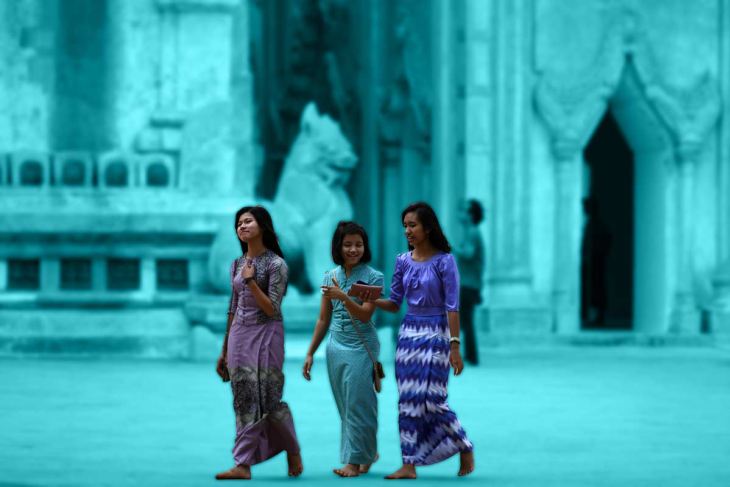

Myanmar’s tourism gets a boost
- Show more sharing options
- Copy Link URL Copied!
Waiting for change at Myanmar's central bank
Myanmar’s central bank governor kyaw kyaw maung has long been seen as an impediment to reform. but come july, he will be out and a new chief will be in, heralding, it is to be hoped, a new era of change.

Being a bank in Myanmar isn’t easy, with lenders of all sizes facing insuperable challenges every day. Foreign banks love the frontier market’s potential, but remain virtual outsiders, denied the right to offer onshore services.
Local banks face their own knotty problems. Many are too small to last the course; even larger, well-run lenders with ambition and potential suffer from a lack of capital. Financial talent is in short supply, while risk management and corporate governance is “very weak”, says Kyaw Soe Min, deputy managing director at Myanma Apex Bank, a private lender founded in 2010. “There is no banking culture. We are stuck in the Stone Age – civilization has yet to reach us.”
Bankers spend their days grappling with laws that are either patchy or non-existent, or which date back to British times, notes Soe Min, referring to the time when London ruled the nation from afar.
The lack of a national land registry makes it hard to determine who owns what, while laws that cover stamp duty have “in every material respect not changed since 1898”, Yangon law firm VDB Loi notes in a September 2017 banking report.
These are problems with deep roots that will take years or even decades to resolve.
Yet there is one thing that the government can do to make life easier all round: sack the central bank governor. That may sound callous – but it’s true, and everyone knows it.
The current head of the Central Bank of Myanmar (CBM) is Kyaw Kyaw Maung. An old man in a young country, he is set to turn 80 next year. Eyebrows were raised when he was restored as governor in 2013, having run the bank from 1997 to 2007 when the country was under military rule. More surprise followed when Aung San Suu Kyi retained him three years later, after taking over from Thein Sein as civilian leader and leaving him as the only junta-era official still in office.
Asiamoney requested an interview with the central bank governor and submitted written questions, but never heard back.
"If we waited for them to call us, we'd be here all day." - Head of risk management
In itself, age should not matter. Warren Buffett is still going strong at 87, as is Li Ka-shing at 89. But it does matter when your decisions – or lack of them – are holding back a nation that is desperate for the future.
For her part, Suu Kyi was worried enough about the incumbent governor to canvass opinion across the financial sector.
Back in 2016, notes the chief executive of a leading Yangon-based bank, “she spoke to a lot of us. We all told her not to retain the governor, but she was worried about how it would look, having to sack him on day one. That wasn’t the kind of country she wanted to make.”
So the Nobel laureate and former darling of the West stuck with him, in the hope that he would loosen up and be the reformer the nation needed.
That didn’t happen.
The governor did little to placate concerns or confound low expectations, proving slow to pass new financial laws and even slower to explain them to confused bankers.
“I’ve lost count of the number of times I’ve been told by the central bank: ‘We set the rules. It’s up to you to interpret them’,” says one leading banker.
The head of risk management at another lender adds: “We meet with central bank units a lot. But it’s always us engaging them. If we waited for them to call us, we’d be here all day.”
It doesn’t help that the banks are all based in Yangon, while politicians and regulators live 200 miles away in the political capital Naypyidaw.
Keys to the castle
Can everything be laid at the feet of one man? Under Maung, the central bank can hardly be accused of acting swiftly and decisively. It took the central bank 18 months after the passing of a Financial Institutions Law in January 2016 to issue a set of rules that guide and govern the sector.
The rules force banks to maintain a liquidity coverage ratio of at least 20%, and to limit exposure to a single individual or entity to no more than 20% of core capital – no small challenge in an economy where the powerful often lend to themselves and friends.
But banks had a collective seizure when told in July 2017 they had six months to recover all outstanding open-ended ‘overdraft loans’ – credit disbursed to customers on preferential terms and then constantly rolled over.
These facilities are ubiquitous, making up an estimated 70% of the $9 billion national lending pool. The new norms, which aim to bring local banks closer to international standards, made sense. Yet the central bank at first turned a deaf ear to warnings that the tight deadline could destabilize the entire system.
It finally relented in December, redrafting rules to let banks reduce the share of overdraft loans on their books to 50% of the total by July 2018, and 20% by the middle of 2020.
These issues wouldn’t matter as much if the governor were in charge of a less important body. Central banks are powerful institutions, often misunderstood but vital to economic health. But the CBM is unusually influential, if only because so much of the economy remains disconnected and so many financial laws and regulations unwritten, or in dire need of revision.
“We need reform,” says a leading banker. “This is a top-down culture, and we need an active top-down regulator. The governor is neither of those things.”
When Hal Bosher, adviser to the chairman, and chief executive of Yoma Bank, one of the best-run private lenders, says the “keys to the castle sit in the central bank”, he makes a valid point.
Power emanates from the central bank. When it does not – when that power is misused or diluted – both the banking sector and the wider economy suffer.

It is famously hard to prove a theory in the absence of fact, but that is not the case here. Examples of the central bank failing to write, pass and implement legislation that would strengthen the banking system, boost capital creation and private investment, and raise financial inclusion, are legion.
Take financial inclusion. Data is hard to pin down, but leading bankers reckon that fewer than six million people, or just one in every 10 Myanmar citizens, have access to formal banking services . Part of the problem is the lack of a national credit bureau, something bankers have been pleading for.
“Without a credit bureau, we cannot assess creditworthiness, as there’s no hard data available on anyone,” says Soe Min at Myanma Apex Bank. “We learn about customers based on their interactions with us, which takes time. Say we take them at face value. Some of them try to cheat by giving us fake salary slips and tax returns, and it’s up to us to spot the fraud. The challenge, and it’s a huge one, is the lack of consistency and validity in personal data across the system.”
This hurts everyone. It stops lenders identifying low-risk citizens who might be young and employed but new to the banking system and who just want to take out a loan to buy a washing machine or scooter. But it also impedes efforts to improve financial inclusion. Back in 2011, before the country began opening up to the world, the government passed a microfinance law with the aim of extending financial services to tens of millions of unbanked people.
By the end of 2017, a total of 256 microfinance institutions (MFIs) were in operation onshore, according to the IFC, the private sector arm of the World Bank.
Yet local microfinance providers often struggle to lend to the needy, because they are unable to borrow.
“Banks don’t know how to assess MFI risk,” says a Yangon development banker. “They have no credit history, no assets, no value, no lending history. And they lack that because they cannot borrow the capital they need to lend. It’s the ultimate Catch-22. The largest bank here has $6 billion to $7 billion in deposits and the largest MFI has zero deposits. It’s a crying shame.”
That may finally be changing. The first fully operational credit bureau should open its doors in the second half of 2018 – though it is still waiting for approval from the central bank.
The bureau is the result of a lot of hard work by the IFC and the Myanmar Banks Association, and will draw on a huge pool of customer data sucked in from the country’s big lenders.
“We all worked together on it,” says one bank deputy chief executive. “It’s a collective effort. Once that’s in place, with data widely shared, it will be a lot easier to determine risk and disburse loans.”
Capital needed
Then there’s the thorny issue of capital. Banks are keen to raise money any way they can. The 2016 financial institutions law requires banks to have minimum paid-up capital of K20 billion ($15 million). And while reliable data is hard to pin down, bankers in Yangon say just 60% to 70% of lenders meet that requirement.
“The system needs a lot more capital,” says Yoma Bank’s Bosher. “Helping banks self fund is the best way of improving industry profitability. We need to be able to issue different financial instruments, including preferred debt and tier-2 capital.”
And yet banks constantly find themselves thwarted by an institution that seems uncertain of either its own mind or its moral obligations. “The only constraint to banks being able to raise capital or reform is the central bank,” notes one executive.
Banks regularly submit requests to issue debt, only to be rebuffed. Aya Bank, the second-largest private bank by loans and deposits, lodged a request with the central bank to issue tier-2 debt in September 2017 that is still pending.
“The aim is to double our capital base by the end of 2018 and then double it again,” says Azeem Azimuddin, Aya’s chief financial officer and adviser to the chairman. “That will raise our capital adequacy ratio in line with international standards.”
And what of foreign banks buying into domestic lenders and being allowed to serve locals onshore?
Letting Myanmar’s banks sell stakes to foreign investors that are committed to the market’s long-term development would seem a no-brainer. After all, every foreign bank has to commit $75 million in paid-up capital to secure an operating licence – and some, like Singapore’s OCBC, have doubled their capital base. Foreign banks have the money that local banks need.
“They should be allowed to buy stakes in local banks, so long as everyone agrees,” says Yoma Bank’s Bosher.
Aya’s Azimuddin agrees, pointing to signs that laws are slowly changing to let foreign banks do more retail and corporate business onshore.
“We’re not afraid of the competition,” he says. “However, foreign bank branches should have to incorporate locally so they can make long-term investments in technology and knowhow to build local capacity.”
But again the central bank is clearly conflicted. Larger players like Yoma, Aya and KBZ, the largest bank by deposits and customers, should be able to take care of themselves. But Myanmar has a plethora of lenders: 28 in total, including 14 in private hands and 10 part-owned by ministries and government bodies.
(Curiously, one area where the central bank has been proactive is in the distribution of new licences. In December 2017, it approved the creation of five sector-specific lenders, including Myanmar Tourism Bank, Mineral Development Bank and the wonderfully named Glory Farmer Development Bank.)

Many smaller outfits are severely under-capitalized, and authorities are clearly concerned about exposing them to tough new competition.
“National aspirations play a key part in the puzzle,” says George Koshy, head of compliance and risk management at United Amara Bank. “I worked in Ghana, where foreign banks moved in and local ones got crowded out. You want strong local banks, but you also want competition, and it’s a case of finding where the right balance is.”
That may change. In December 2017, president Htin Kyaw approved a revised Companies Act that will allow foreign investors to buy up to 35% of local firms in non-sensitive industries – though it isn’t clear if banking will be added to that list.
Another capital-raising avenue open to banks involves selling shares to investors. But this generates yet more obstacles. Stock listings are approved by the Securities and Exchange Commission, which in 2016 opened the Yangon Stock Exchange, a shiny new bourse based in an opulent building across Sule Pagoda Road from the old Myanmar Stock Exchange .
The new bourse heralded a new dawn for Myanmar capital markets, but it hasn’t arrived. Just five companies are listed on the YSE, including the smallish private lender First Private Bank, which completed its $7.2 million listing in January 2017 and Myanmar Citizens Bank, part-owned by the commerce ministry, which raised $1.2 million from its August 2016 share sale.
Most lenders have broached the idea of a listing in Yangon or Singapore or both with the SEC, only to be rebuffed or ignored.
“We talk about it,” says the chief executive of a top-five bank. “But it will take five or 10 years to complete.”
The YSE is tiny and illiquid, often closes on hot afternoons, and had a market cap, at close of trading on March 9, of just $440 million.
Banks are, however, planning for the future: in 2017, Aya Bank launched its own underwriting business, Aya Trust Securities, with more than half an eye on its own future stock listing.
Change at last
The good news is that change is on the horizon. Maung is scheduled to step down as central bank chief in July, with his replacement likely to come from inside the CBM, bankers and government officials say.
Three eminently qualified candidates stand out, two deputy governors appointed to their posts in July 2017, and a wild-card choice.
Bo Bo Nge, 49 years old and a graduate of London’s School of Oriental and African Studies, is an economist by training and a former head of risk management at KBZ Bank. He joined the central bank shortly after being elected to the economic committee of the ruling National League for Democracy, Aung San Suu Kyi’s political party.
Soe Thein is another highly qualified candidate. An accountant by training who previously headed the finance ministry’s budget department, he has been highly visible of late.
When the central bank granted approval to seven foreign banks (their names have not yet been released) to provide export-financing services onshore to local corporates, it was Soe Thein who made the announcement. And it was Soe that announced in March that the central bank would fully liberalize the financial sector over the next five to 10 years and allow banks to set their own interest rates.
Then there’s Soe Win, an accountant who has been grappling with the country’s bureaucracy since the early 1980s and who founded Deloitte Touche Myanmar Vigour, the largest domestic auditor, in 2003.
"We had the wrong guy, but after July, we should have the right guy." - Banker
Soe Win would be, one senior government adviser says, “an exceptional choice. He would be new to the central bank, but that would not be a bad thing, and he would be the reformer we need. The only doubt would be whether he would turn down the post due to health or old age.”
One development official notes that as July approaches, the bank is becoming notably more decisive, with a greater focus on bank supervision and new regulations. The leading candidates in line for the governorship are all “proactive”, he says, “and as soon as the old guard is gone, I’m sure things will improve.”
Myanmar has so far to go, and so much to do. The financial sector is a work in progress, dominated by tycoons who made their fortunes from the old, closed economy. Banks are data-poor, short on liquidity and skilled labour, and burdened by too many dud loans.
In November, Soe Thein, who was instrumental in giving lenders more time to recover billions of dollars in overdraft loans, said most banks did not “know the magnitude of [their] non-performing loans”. Most lenders post NPL ratios of between 5% and 6% but that, the central bank deputy governor admitted, was “lower than the real situation”.
But for the first time since Myanmar began opening up to the world, there are signs of progress. This year will see the rollout of the first credit bureau, giving banks greater surety when disbursing loans. Foreign banks are precluded from buying stakes in local peers, but each year their presence and product range, and their commitment to the market, grows.
And after a half-century of isolation, and a further five years of stasis, while it laboured under the wrong leader, the central bank is gearing up for some much needed internal reform.
“We had the wrong guy, but after July, we should have the right guy,” says a leading banker. “We have spent too many years not making enough progress. Hopefully, that is about to change.”
Where are the experts?
When Myanmar began opening up to the world in 2012 after a half-century of military rule, it faced a dilemma.
The country had little money and few real banks. Those that existed were owned by tycoons (Yoma Bank and KBZ, for example) or military-run conglomerates (such as Innwa Bank).
It urgently needed capital, so nine foreign lenders – all from Asia , including ANZ, Bank of Tokyo-Mitsubishi UFJ and Singapore’s OCBC – were ushered in. They opened rep offices in 2013 and secured full banking licences two years on, with four more lenders later added to the list. Each provided $75 million in paid-up capital to secure access to the frontier market.
With the capital in place, the authorities cast around for ways to make their banks better. In came the World Bank’s private-sector arm, the IFC, providing $12 million in convertible loans to Yoma Bank and Myanmar Oriental Bank (MOB), to expand lending to small and medium-sized enterprises and improve risk management.
German development agency GIZ is helping six lenders including KBZ, MOB and Shwe Bank to meet IFRS compliance requirements, says country head San Thein.
But what the sector really lacked was expertise, an issue it’s seeking to redress.
Chee Seng Liew – the deputy managing director at CB Bank, the second-largest lender by total deposits – says training is “the biggest barrier to development.
When I joined in 2013, we had 1,000 staff; now we have 8,000. Imagine the level of training that was needed.” What the bank needed was its own development programme (the number of trained staff in Myanmar was nonexistent, Liew says), so he looked around for help.
“We’ve engaged with GIZ, with the Asian Development Bank, and a few other multilaterals,” he says. “Bank of Tokyo-Mitsubishi has been helping with trade finance and credit risk management. But it’s slow: these are complex skills, the training is ongoing, and our best staff often get poached by foreign banks.” As the sector develops, a chasm is emerging between lenders that seek out (and can afford) outside help and those that do not and cannot.
A key development is the hiring of highly qualified foreign staff. CB Bank’s Liew was previously at First Gulf Bank.
Mike DeNoma joined KBZ, Myanmar’s largest bank by assets, in May 2017, after long stints in Taiwan at CTBC Bank and in Singapore at Standard Chartered.
Christopher Loh joined United Amara Bank four months later, from Malaysia’s RHB Banking Group.
Most take up technical roles in IT, or senior roles whose titles are designed to deflect attention away from the power they wield.
DeNoma is adviser to KBZ chairman Aung Ko Win, one of Myanmar’s richest men. Liew at CB Bank is an adviser to chairman Khin Maung Aye. Azeem Azimuddin is adviser to Aya Bank chairman Zaw Zaw. And Hal Bosher, despite being chief executive of Yoma Bank, officially describes himself on his business cards as adviser to Serge Pun, another tycoon, and chairman of Yoma. “Regulators are wary of any overt foreign influence in the sector,” notes an executive at a leading multilateral.

As a premium subscriber, you can gift this article for free
You have reached the limit for gifting for this month
There was an error processing the request. Please try again later.
Hotline : +959 682 682 682
+959 682 682 682
Exchange Rate
Language Title

check out our latest featured
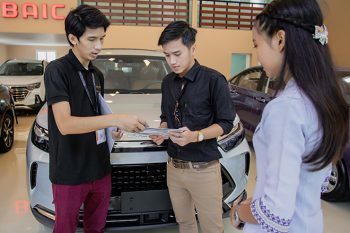
Hire Purchase
အရစ်ကျစနစ်ဖြင့် မော်တော်ယာဉ်နှင့်အခြားလုပ်ငန်းသုံး/လူသုံးကုန်ပစ္စည်းများဝယ်ယူပိုင်ဆိုင်စေနိုင်ခြင်း။

စာရင်းသေအပ်ငွေ

ခေါ်ယူအပ်ငွေစာရင်း
ခေါ်ယူအပ်ငွေစာရင်းဆိုသည်မှာလူပုဂ္ဂိုလ်(တစ်ဦးချင်း/တွဲဖက်)နှင့်ကုမ္ပဏီအဖွဲ့အစည်းများအနေဖြင့်မိမိတို့၏ငွေကြေးလှည့်ပတ်မှုအခြေအနေအရအချိန်ပိုင်း၊ရက်ပိုင်းအပ်နှံထားရှိ၍အတိုးရင်းအပ်ငွေအမျိုးအစားဖြစ်ပါသည်။

ငွေစုဘဏ်စာရင်း
ငွေစုဘဏ်အပ်ငွေစာရင်းသည်ငွေကြေးလုံခြုံစွာထိန်းသိမ်းထားရှိရန်၊ပုံမှန်အတိုးငွေထုတ်ယူခံစားနိုင်ရန်နှင့်နောင်ရေးအတွက်စုဆောင်းထားရှိရန်ဖွင့်လှစ်ထားရှိသောအတိုးရရှိသောအပ်ငွေအမျိုးအစားတစ်ခုဖြစ်ပါသည်။
check out our latest Card Services
Card service, mtb mpu debit card mm, ကျွန်ုပ်တို့အကြောင်း.
မြန်မာ့ခရီးသွားဘဏ်သည် မြန်မာနိုင်ငံတော်ဗဟိုဘဏ်မှ ၂၀၁၈ တွင် ဘဏ်လုပ်ငန်းလိုင်စင်ကိုရရှိခဲ့ပြီး ပြည်သူများထံသို့ အကောင်းဆုံးဘဏ်လုပ်ငန်းဝန်ဆောင်မှုများပေးခဲ့ပါသည်။ ကျွန်ုပ်တို့၏ ရုံးချုပ်ဘဏ်ခွဲမှာ ရန်ကုန်မြို့ ၊ကျောက်တံတားမြို့နယ်၊ ဆူးလေးဘုရား လမ်းမကြီးပေါ်တွင် တည်ရှိပါပြီး လက်ရှိတွင် ရန်ကုန်၊ မန္တလေး၊ နေပြည်တော်နှင့် မြဝတီမြို့များတွင် စုစုပေါင်းဘဏ်ခွဲ ၆ခုဖြင့် ဘဏ်လုပ်ငန်းများဆောင်ရွက်ပေးလျက်ရှိပါသည်။ မိမိတို့သည် ခရီးသွားလုပ်ငန်းများနှင့်ဆက်စပ်နေသည့် ဘဏ်ဖြစ်သည့်အလျောက် မြန်မာနိုင်ငံ၏ခရီးသွားကဏ္ဏအား အဓိကထားကာ တိုးတတ်ကောင်းမွန်စေရန်အထောက်အကူများပေးမည်ဟုရည်ရွယ်ထားပြီးအခြားသောစီးပွားရေးကဏ္ဏများကိုပါငွေးကြေးအရကူညီထောက်ပံ့ပေးရန် အစီအစဉ်များ ချမှတ်ထားပါသည်။
check out our latest Highlights

အိန္ဒိယ-မြန်မာ ရိုးရာအစားအစာပွဲတော်
India 🇮🇳 – Myanmar 🇲🇲 Traditional Food Festival အိန္ဒိယအမျိုးသမီးအသင်း(ရန်ကုန်) “ Indian Women’s Association Yangon (IWAY)” နှင့် မြန်မာအမျိုးသမီး စွန့်ဦးတီထွင်သူများကွန်ရက် “ Myanmar Women Entrepreneurs Network (MYANWEN)” တို့ပူးပေါင်း၍

India-Myanmar Traditional Food Festival
India 🇮🇳 – Myanmar 🇲🇲 Traditional Food Festival We had an amazing time participating in the India-Myanmar Traditional Food Festival at the Swami Vivekananda Cultural Centre, Yangon,
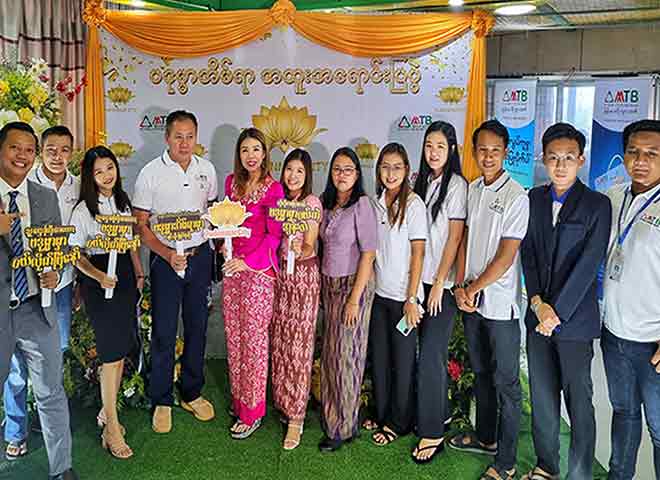
ပိုင်ဆိုင်မှု ခိုင်မာသည့် ပဒုမ္မာအဆင့်မြင့်အိမ်ရာ အထူးအရောင်းပြပွဲကြီး
ပဒုမ္မာအိမ်ရာ နှင့် မြန်မာ့ခရီးသွားဘဏ် တို့ ပူးပေါင်းလက်တွဲပြီး ကျင်းပသော ပိုင်ဆိုင်မှု ခိုင်မာသည့် ပဒုမ္မာအဆင့်မြင့်အိမ်ရာ အထူးအရောင်းပြပွဲကြီးကို (၂၀၂၃) ခုနှစ်၊ ဇူလိုင်လ (၉) ရက်နေ့ တနင်္ဂနွေနေ့ တွင် ဧရာဝတီတိုင်းဒေသကြီး၊ မအူပင်မြို့ရှိ “ မအူပင်ဟိုတယ်” ၌ကျင်းပခဲ့ပါသည်။
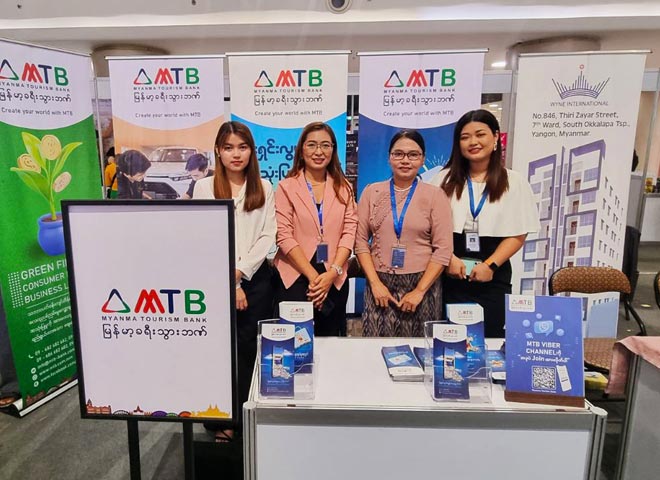
BAMAR – THAI Trade Fair 2023
ထိုင်း – မြန်မာ နှစ်နိုင်ငံ ကူးသန်းရောင်းဝယ်ရေး အရှိန်အဟုန် ပိုမိုမြင့်မားစေရန် ရည်ရွယ်ချက်ဖြင့်

မြန်မာ့ခရီးသွားဘဏ် ၏ မန္တလေး (ကျွဲဆည်ကန်ဘဏ်ခွဲ) စတင် ဖွင့်လှစ်လိုက်ပြီဖြစ်ပါကြောင်း

မြန်မာခရီးသွားဘဏ် မှ အသစ်ထပ်မံ ဖွင့်လှစ်သွားမည့် ဘဏ်ခွဲများတွင် နေ့ဆွမ်း ဆက်ကပ်လှူဒါန်းခြင်း
မန္တလေးမြို့တွင် အသစ်ထပ်မံ ဖွင့်လှစ်သွားမည့် ဘဏ်ခွဲအသစ်များဖြစ်သော (မနော်ဟရီဘဏ်ခွဲသစ်) နှင့် (ဈေးချိုဘဏ်ခွဲသစ်) တို့တွင် ဘဏ်

” Covid-19 ရောဂါကို ကာကွယ်ကာ၊ ကျန်းမာစွာနေထိုင်ပါ “
” Covid-19 ရောဂါကို ကာကွယ်ကာ၊ ကျန်းမာစွာနေထိုင်ပါ “ မြန်မာနိုင်ငံမှာ Covid-19 ဟာ လက်ရှိအချိန်ထိ ဖြစ်ပွားနေဆဲရောဂါမို့ MTB Bank ရဲ့မိတ်ဆွေများအားလုံးအနေဖြင့် ရောဂါကူးစက်ခံရခြင်းမှ ကင်းဝေးပြီး ကျန်းမာရေး ကောင်းမွန်နေဖို့အတွက် အမြဲဂရုစိုက်နေထိုင်ဖို့ မမေ့နဲ့နော်။🙏 ဒါကြောင့်… 🏠 တတ်နိုင်သမျှအိမ်မှာနေပြီး Covid ကိုကာကွယ်ပါ
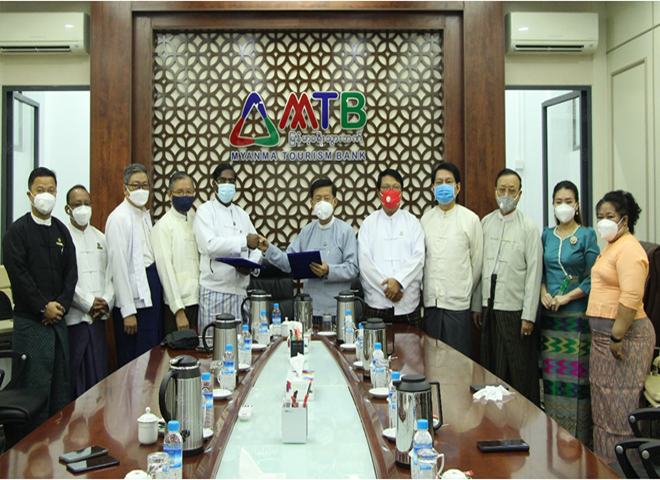
MOU – MTB & MTTA
ရန်ကုန်၊ ၂၀၂၀ ခုနှစ်၊ ဒီဇင်ဘာလ ၂၁ ရက် – မြန်မာ့ခရီးသွားဘဏ်( Myanma Tourism Bank – MTB) နှင့် မြန်မာနိုင်ငံခရီးသွားသယ်ယူပို့ဆောင်ရေးလုပ်ငန်းရှင်များအသင်း (MTTA)တို့သည် အနာဂတ်လုပ်ငန်းများဆိုင်ရာနာလည်မှုစာချွန်လွှာ (MOU)တွင် လက်မှတ်ရေးထိုးကြောင်းကြေငြာခဲ့ပါသည်။

Bank Introduction Services
မြန်မာ့ခရီးသွားဘဏ်၏ ဘဏ်လုပ်ငန်းဝန်ဆောင်မှုများမိတ်ဆက်ခြင်းနှင့် ညစာစားပွဲအခမ်းအနား မြန်မာ့ခရီးသွားဘဏ်၏ ဝန်ဆောင်မှုများကို IBPC အဖွဲ့ဝင်များ၊ မြန်မာနိုင်ငံပဲမျိုးစုံနှင့်
Useful Link
- ATM Locations
Connect with Us
Licence or Product Purchase Required
You have reached the limit of premium articles you can view for free.
Already have an account? Login here
Get expert, on-the-ground insights into the latest business and economic trends in more than 30 high-growth global markets. Produced by a dedicated team of in-country analysts, our research provides the in-depth business intelligence you need to evaluate, enter and excel in these exciting markets.
View licence options
Suitable for
- Executives and entrepreneurs
- Bankers and hedge fund managers
- Journalists and communications professionals
- Consultants and advisors of all kinds
- Academics and students
- Government and policy-research delegations
- Diplomats and expatriates
This article also features in The Report: Myanmar 2016 . Read more about this report and view purchase options in our online store.

U Yan Win Chairman, Myanmar Tourism Federation (MTF): Interview Interview
Myanmar | Tourism
U Yan Win, Chairman, Myanmar Tourism Federation (MTF): Interview
Interview: u yan win.
Where does investment need to be focused to ensure the sustainable development of Myanmar’s tourism industry in the coming years?
U YAN WIN: Since 2011, the tourism industry has been gaining ground and assisting in the development efforts of Myanmar, with a substantial growth in international tourist arrivals and foreign direct investment. The MTF recognises that tourism is a labour-intensive industry, employing workers with low to high skillsets, and can provide one of the most accessible ways to reduce poverty. However, we can only achieve this if the quality and standards of our tourism products and services match what international visitors expect when they come to our country. Encompassing all aspects of inclusive growth and sustainable development over the medium to long term, our vision is clearly defined. It focuses on promoting Myanmar as a tourist destination, assisting in the process of sustainable tourism development, encouraging private investment and developing human resources in the sector.
How will the promotion of ecotourism assist the government in developing a green economy?
YAN WIN: The outcome of the International Conference on Ecotourism in Protected Areas, which was organized in Naypyitaw by the International Centre for Integrated Mountain Development (ICIMOD), and jointly hosted by the Ministry of Hotels and Tourism and the Ministry of Environmental Conservation and Forestry, focused on ecotourism as a mechanism to strengthen livelihoods, adaptation and conservation. We now have the Myanmar Ecotourism Policy and Management Strategy, which was launched during the opening day of the conference. This prioritised 21 areas in our policy and management strategy, including response to climate change, regional environmental and economic challenges, contribution to capacity building, research, and the development of green technologies. It also outlines strategies for promoting national and international cooperation and defines how ecotourism can finance nature conservation with the help of host communities. Promoting ecotourism in Myanmar is a vital component of the government’s effort to develop a green economy.
What can be done on a government-to-government level to increase tourism and connectivity between ASEAN members?
YAN WIN: The MTF is actively involved in ASEAN integration and in preparation for the ASEAN Economic Community (AEC). The recent ASEAN Tourism Forum, which we hosted for the first time since we joined the organisation, was a milestone achievement for our tourism industry. We gained experience as the host country and had the opportunity to let the region and the world know that Myanmar is a “must visit” destination for all international visitors. To increase tourism and connectivity between ASEAN members, there is an urgent need on a government- to-government level to implement the ASEAN Tourism Strategic Plan which focuses on travel facilitation, enhancing market awareness, diversification of destinations, improving tourism worker service skills and the adoption of innovative approaches to destination planning and product development.
In your opinion, why is Naypyitaw best suited to foster the meetings, incentives, conferencing and exhibitions (MICE) segment?
YAN WIN: Naypyitaw is the administrative capital of Myanmar and it has already successfully hosted the South East Asian Games in 2013. Naypyitaw also hosted the ASEAN Summit and related ASEAN high-level meetings during 2014. Naypyitaw is an excellent MICE destination because we have the right logistics in place to support existing central government ministries and many international level venues.
Request Reuse or Reprint of Article
Read More from OBG
Construction – and infrastructure development in particular – is expected to be a key driver of economic growth across ASEAN from 2021. The bloc, home to some of the world’s fastest-growing economies and lowest unemployment rates, faced the novel coronavirus after years of health care infrastructure improvements, with much of the group reporting Covid-19 case-fatality rates below the global mean in 2020.

¿De qué manera la agenda turística del Perú está impulsando el resurgimiento del sector? In English Explore cómo el Perú se aprovecha del desarrollo de su sector turístico y lo usa como motor de crecimiento para impulsar el resto de su economía. Nuestro nuevo vídeo Growth & Recovery, producido por OBG en colaboración con la Comisión de Promoción del Perú para la Exportación y el Turismo (Promperú), analiza la aparición de nuevos motores de crecimiento e inversión en el sector turístico del Perú. Atraídos por un entorno regulatorio favorabl…

Kuwait: Economic Snapshot 2024 Click here to read our Kuwait Economic Report and Investment Analysis 2024 online …


Register for free Economic News Updates on Asia
“high-level discussions are under way to identify how we can restructure funding for health care services”, related content.
Featured Sectors in Myanmar
- Asia Agriculture
- Asia Banking
- Asia Construction
- Asia Cybersecurity
- Asia Digital Economy
- Asia Economy
- Asia Education
- Asia Energy
- Asia Environment
- Asia Financial Services
- Asia Health
- Asia Industry
- Asia Insurance
- Asia Legal Framework
- Asia Logistics
- Asia Media & Advertising
- Asia Real Estate
- Asia Retail
- Asia Safety and Security
- Asia Saftey and ecurity
- Asia Tourism
- Asia Transport
Featured Countries in Tourism
- Indonesia Tourism
- Malaysia Tourism
- Myanmar Tourism
- Papua New Guinea Tourism
Popular Sectors in Myanmar
- Myanmar Construction
- Myanmar Energy
- Myanmar ICT
- Myanmar Industry
- Myanmar Transport
Popular Countries in Tourism
- The Philippines Tourism
- Thailand Tourism
- Oman Tourism
Featured Reports in Myanmar
Recent Reports in Myanmar
- The Report: Myanmar 2020
- The Report: Myanmar 2019
- The Report: Myanmar 2018
- The Report: Myanmar 2017
- The Report: Myanmar 2016
- The Report: Myanmar 2015
Privacy Overview
- International
- Investment & Finance
- Property & Real Estate
- IT & Telecom
- Entertainment
- Sign in / Join

Ooredoo adopts new brand positioning

Z Flip 4 and Z Fold 4 can be pre-ordered in…

The Best Companies to Work in Myanmar (BCIM) campaign returns!

Ooredoo Pledges to Continue Tech Age Girls Myanmar Program

Telenor Myanmar Changes Its Name to Atom Myanmar

IMEI number of mobile phones required to be registered

Nay Pyi Taw to be implemented as a green, clean, and…

Where Myanmar Plaza Came from and Where It Is Heading

Dollar rate eases after Central Bank tightens reference rate

Myanmar to introduce paper gold

CBM Issues Entity List Exempted from Foreign Currency Conversion Requirement

1.6 million jobs lost in Myanmar in 2021: ILO

Myanmar’s economy to grow only 1 percent in 2022: World Bank

Big Bad Wolf Book Sale Going Online This Year

In the Time of Crisis, Protect Your Valuable Assets; It’s People

World’s ultra-wealthy go for gold amid stimulus bonanza

India approves Gilead’s remdesivir to treat severe COVID-19 cases
Myanmar tourism federation to establish tourism bank.

The Myanmar Tourism Federation (MTF) has applied to the Ministry of Finance to establish a tourism bank in a bid to develop Myanmar’s burgeoning tourism sector, an MTF official said.
“Even though tourism belongs to the service industry it still needs financial assistance including loans like other industries,” U Naung Naung Han, general secretary of MTF, told Myanmar Business Today.
“Tourism businesses can be seen as small and medium enterprises. There are banks for livestock, agriculture but no financial institution for the [tourism] sector. So, we aim to develop a bank for tourism,” he added.
Dr Aung Myat Kyaw, chairman of the federation, said, “Tourism business is an extensive sector, it’s not only about foreign tourists. There are a lot of tourism-related businesses that need to be developed.”
With Myanmar’s opening up in-country tourism has also boomed along with the surge in foreign tourist arrivals and the federation said it gradually aims to focus more on local travellers.
MTF said once the ministry grants the permit for the bank it will start giving financial assistance to improve hotel and guesthouse businesses, transportation and other sectors that are related to the tourism sector.
Myanmar’s tourism master plan for 2014-2020, which was drafted jointly by the Ministry of Hotel and Tourism and tourism organisations, suggests the ministry and civil society provide assistance for the development of the tourism industry.
RELATED ARTICLES
Leave a reply cancel reply.
Log in to leave a comment

Z Flip 4 and Z Fold 4 can be pre-ordered in...


Myanma Tourism Development Public Company Limited
MTF is developing the Tada Oo Project through the Myanma Tourism Development Public Company. This is a new town development 30 minutes from Mandalay, the second largest commercial city in Myanmar. The project will feature areas for residential, commercial and… See More
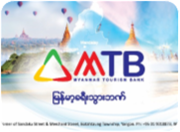
Myanma Tourism Bank
Myanma Tourism Bank also known as MTB bank, was granted a commercial banking license in 2018 under the Financial Institution Law (FI Law) by the Central Bank of Myanmar. Our head office is located in Sule Pagoda Road,Kyouktada Township, Yangon and … See More
No.4, Corner of Merchant Road & Sandaku Road, 3 Ward, Botahtaung Township, Yangon, Myanmar. Tel : +95 1 203861, 203862 Fax : +95 1 203863 Email : [email protected]
Int'l volunteers
Other tourism sites.
www.tourism.gov.mm www.myanmar.travel www.visitmyanmar.cn

Search form
- Entertainment
- ထင်ရှားကျော်ကြား
- BRANDED CONTENT
- Help (Application FAQs)

Eleven Media Group Co., Ltd
Myanmar, russia sign mous on bank accounts opening between central banks of two countries and tourism cooperation.
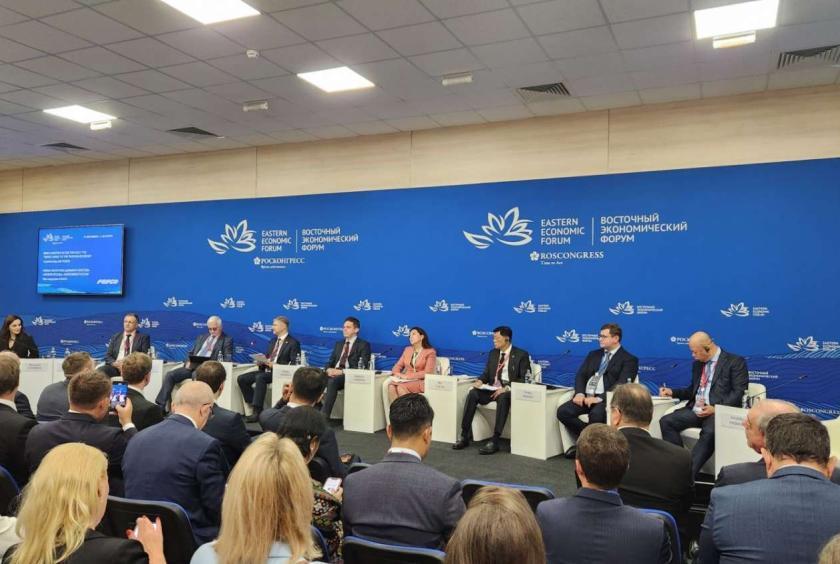
Myanmar and Russia signed agreements on opening bank accounts between the central banks of two countries and tourism.
Myanmar delegation led by State Administration Council Member and Deputy Prime Minister Union Minister for Transport and Communications General Mya Tun Oo attended the Eastern Economic Forum held in the Russian Federation from 10 to 13 September singed above agreements.
Governor of CBM of Myanmar and vice-Governor of Russian central Bank singed the MoU on opening bank accounts between central banks of two countries, with the aims of having more conveniences in investments and in payments, and to open Russian bank branches in Myanmar. Union Minister for Tourism of Myanmar and Minister for Economic Development of Russian Federation signed MoU on cooperation in Tourism between the two countries with the aim of increase in tourists’ arrivals, upgrade in tourism services, promote in tourism industries.
The Myanmar delegation held key meetings with Russian officials during their visit. They met Adviser to the President of the Russian Federation and Chairman of the Managing Committee of Roscongress Foundation Mr Anton Kobyakov to discuss ongoing and future work plans between the two countries on 10 September.
They met Minister of Economic Development of the Russian Federation Mr Maxim Reshetnikov on 12 September to discuss the fourth meeting of the Russia-Myanmar Inter-Governmental Commission on Trade and Economic Cooperation, bilateral trade progress, and cooperation road maps.
Further discussions with First Deputy CEO Mr Sergey Pavlov of JSC Russian Railways focused on railway infrastructure, collaboration projects at locomotive and coach plants in Myanmar, educational opportunities in Russian universities, technical and financial assistance to Myanmar’s railway sector, and investments in dry port construction.
The delegation also explored economic cooperation between Russia and ASEAN countries and promoted Myanmar-Russia bilateral trade and investment during talks with Mr Ivan Viktorovich Polyakov, Chairman of the Russia-ASEAN Business Council.
The delegation met the Governor of Ikut to discuss development-related matters, tourism, and economic cooperation. They also discussed potential sea route trade and bilateral cooperation in the tourism industry with the Governor of Primorsky region on September 13.
They also met with officials from Aquarius Technology Ltd and Far Eastern FederalUniversity (FEFU) to discuss digital-related matters, cyber security, an MoU between the Ministry of Health and FEFU, and the establishment of an FEFU office in Nay Pyi Taw.
The delegation also visited the Commercial Port of Vladivostok to study port operations and management.
Related Articles
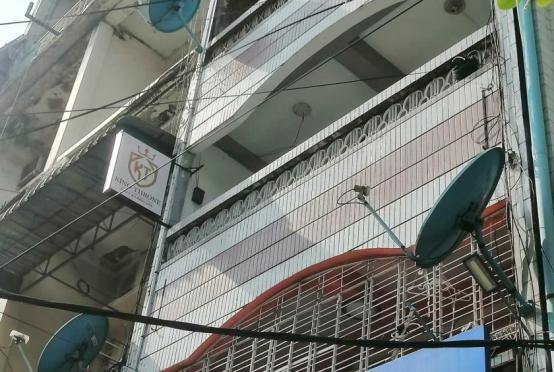
Most Recent

(+959)965-171-408,969-500-511,861-808-4
(01) 400-528, 400-524
24-HOUR AUTOMATED SERVICE
[email protected]
[email protected]
www.news-eleven.com

IMAGES
VIDEO
COMMENTS
Myanma Tourism Bank also known as MTB bank, was granted a commercial banking license in 2018 under the Financial Institution Law (FI Law) by the Central Bank of Myanmar. Our head office is located in Sule Pagoda Road, Kyouktada Township and branches all over the nationwide. As a tourism related bank, we focus and support on tourism industry and ...
About. With over 20 years of experience in finance and banking, I lead and transform financial institutions in Myanmar and abroad. As the CEO of Myanma Tourism Bank, I oversee the bank's strategic ...
Shared by Andrew khant. Being a lady who matured on goal ️ I need many potential people to join with Head Office of ABA Bank. Contact: 096 58 28 963/ 081 63 0008.
Myanma Tourism Bank opened in Yangon on May 6, sources said. The opening ceremony was held at Novotel Hotel in Yangon on My 6 and Ohn Maung, Minister for Hotel and Tourism, Yangon Region Chief Minister Phyo Min Thein, Myanmar Tourism Bank's Chairman Yan Win, officials from the bank, Chairman of Myanma Banks Association and officials from Travel Association attended the ceremony.
Myanmar is looking to capitalise on a recent tourism rebound and stimulate more investment in the sector, following efforts to improve access to credit for smaller operators. In May 2019 the first branch of the Myanma Tourism Bank (MTB) - the country's first bank dedicated to supporting the tourism and hospitality sector - opened
Offering low interest loans to Myanmar's tourism players, the bank started operations at its headquarters in Yangon on 6 May - with offices in the capital Nay Pyi Taw and Mandalay among those in the bank's ambitious plan for a network of 10 branches by the end of 2019. ... chairman of tourism group Amata Holding, told Oxford Business ...
Myanma Tourism Bank. 92,941 likes · 628 talking about this · 280 were here. Official Facebook Page of Myanma Tourism Bank
Myanmar is looking to capitalise on a recent tourism rebound and stimulate more investment in the sector, following efforts to improve access to credit for smaller operators. In May 2019 the first branch of the Myanma Tourism Bank (MTB) - the country's first bank dedicated to supporting the tourism and hospitality sector - opened in Yangon.
Published 11 Jul 2019. Myanmar is looking to capitalise on a recent tourism rebound and stimulate more investment in the sector, following efforts to improve access to credit for smaller operators. On May 6 the first branch of the Myanma Tourism Bank (MTB) opened in Yangon. This is the country's first bank dedicated to supporting the tourism ...
Myanmar Tourism Bank | 882 followers on LinkedIn. As part of a plan to promote the tourism industry, the Myanmar Tourism Federation is to establish Myanmar Tourism Development Bank in Yangon, Mandalay and Nay Pyi Taw this year. The bank branches will be opened based on the amount of available investment capital.
The launch of the Myanma Tourism Bank (MTB) earlier this year is the latest initiative by the Myanmar government to spur development in its growing tourism sector.Offering low interest loans to Myanmar's tourism players, the bank started operations at its headquarters in Yangon on 6 May - with offices in the capital Nay Pyi Taw and Mandalay among those in the bank's ambitious plan for a ...
Myanma Tourism Bank. 3,667 followers. 1w. We are delighted to announce the partnership between Myanma Tourism Bank (MTB) and Myanmar Young Entrepreneurs Association (MYEA). This collaboration will ...
"The bank will also offer travel loans. It is preparing payment solutions to support the tourism sector's needs. In addition to the tourism sector, it will offer banking services to other sectors," he said. The MTB is the first tourism bank in Myanmar. The bank is planning to open branches in Nay Pyi Taw, Mandalay city, and the Muse and ...
The bank also aims to help companies, organizations and hotels from the tourism industry. Interest rates are the same as those prescribed by the Central Bank. The bank will spend five percent of its profit for tourism development," said Yan Win, chairman of Myanmar Tourism Bank. Myanmar Tourism Bank was first established on May 6 with the aim ...
So, MTB will provide non-col-lateral SME loans to them," said U Yan Win, chairman of MTB. "The bank will provide a maximum of Ks 20 million per business. The non-collateral loan period will be two years, with a 13 per cent interest rate per annum for the bank, and three per cent for insurance. For months long loans the small businessmen ...
In December 2017, it approved the creation of five sector-specific lenders, including Myanmar Tourism Bank, Mineral Development Bank and the wonderfully named Glory Farmer Development Bank.) Many smaller outfits are severely under-capitalized, and authorities are clearly concerned about exposing them to tough new competition.
No.437(Ka), Pyay Road, 8 Ward, Kamayut Township, Yangon, Yangon, Myanmar 11041, MM
Myanma Tourism Bank. Skip to content. Hot Line. Hotline : +959 682 682 682 +959 682 682 682. Exchange Rate. Language Title. ENG; ... India 🇮🇳 - Myanmar 🇲🇲 Traditional Food Festival ...
Interview: U Yan Win Where does investment need to be focused to ensure the sustainable development of Myanmar's tourism industry in the coming years? U YAN WIN: Since 2011, the tourism industry has been gaining ground and assisting in the development efforts of Myanmar, with a substantial growth in international tourist arrivals and foreign direct investment.
THE Ministry of Hotels and Tourism is implementing the strategic roadmap for Myanmar tourism recovery (2021-2025) which comprises 18 strategies and 93 detailed action plans to be able to achieve success in short-, medium- and long-term plans, said the Chairman of the State Administration Council Prime Minister Senior General Min Aung Hlaing at the ceremony to mark the 2022 World Tourism ...
The Myanmar Tourism Federation (MTF) has applied to the Ministry of Finance to establish a tourism bank in a bid to develop Myanmar's burgeoning tourism sector, an MTF official said. "Even though tourism belongs to the service industry it still needs financial assistance including loans like other industries," U Naung Naung Han, general ...
Contact Us. No.4, Corner of Merchant Road & Sandaku Road, 3 Ward, Botahtaung Township, Yangon, Myanmar. Tel : +95 1 203861, 203862 Fax : +95 1 203863
Myanmar and Russia signed agreements on opening bank accounts between the central banks of two countries and tourism. Myanmar delegation led by State Administration Council Member and Deputy Prime Minister Union Minister for Transport and Communications General Mya Tun Oo attended the Eastern Economic Forum held in the Russian Federation from 10 to 13 September singed above